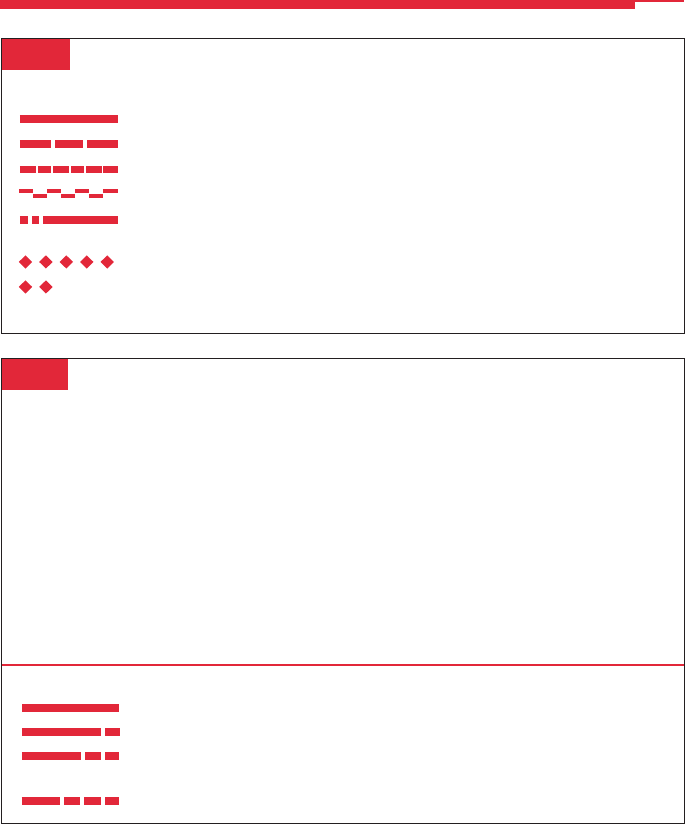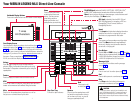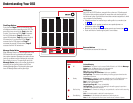
4
␣Tones␣
Tone Meaning
Dial tone (steady) You can make a call.
Busy (slow repeating tone) The phone you are calling is busy.
Fast busy (fast repeating tone) No lines are available.
Error (alternating high-low tones) You dialed a number or used a feature incorrectly.
Confirmation (double break in You used a feature correctly.
dial tone followed by steady tone)
Callback (5 short beeps) This call is receiving Callback treatment (p. 19).
Call Waiting (1 or 2 beeps) You have an inside (1 beep) or an outside
(2 beeps) call waiting (p. 20).
␣Rings␣
The table below helps you identify the different types of ringing. You can also personalize ringing at
your telephone or adjust ring timing for the line buttons where calls arrive. Programming Buttons
& Settings, p. 27, tells you how to change the settings. Listed below are your options:
• Personalized Ring. Allows you to give calls ringing at your phone one of eight
distinctive rings.
• Abbreviated Ring. When you are on a call and another call arrives at your phone, you can use
this feature to give the second call a short ring.
• Immediate Ring. Calls ring immediately on line buttons set this way.
• Delay Ring. This setting causes calls to ring at your phone after a delay. If your calls are being
covered, this allows time for another person to answer a call before you do.
• No Ring. Calls do not ring (except for returning transferred and Callback calls). Calls on lines
set for No Ring do not receive Coverage (p. 20).
Ring Meaning
1 long ring Inside call
1 long ring and 1 short ring Outside call
1 long ring and 2 short rings Priority ring; outside call transferred to you or
returning camped-on call (p. 20)
1 long ring and 3 short rings Returning Callback call (p. 19)
Understanding Your Direct-Line Console


















